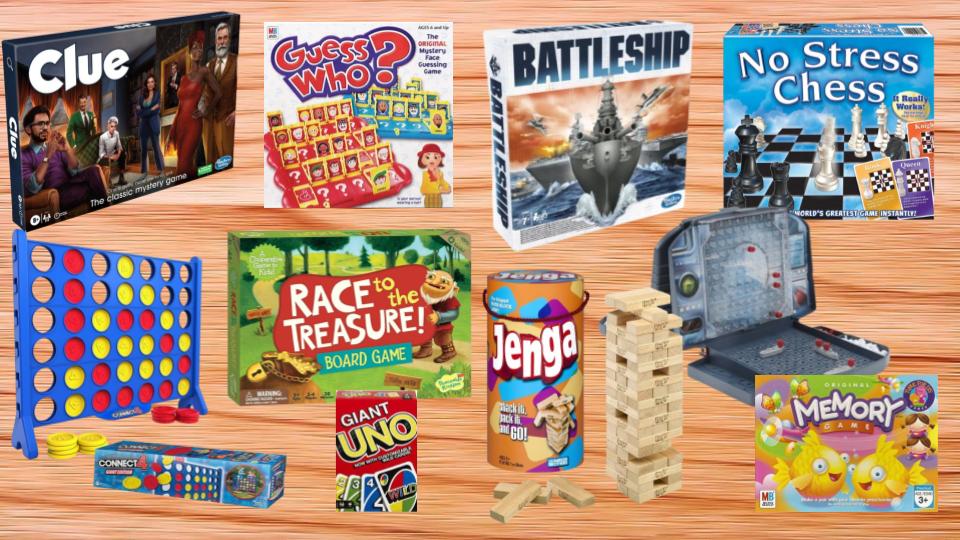Did you know that in addition to being fun to play, board games provide great exercise for your child’s brain? Board games can be an enjoyable way for all kids, including those with learning and attention challenges, to build their brain’s executive function skills.
Executive functions are the mental processes that are required to pay attention, control impulses, plan ahead, organize thoughts, and manage emotions throughout the day. They allow us to think before we act and consider consequences so that we can make wise decisions. Research has shown that these skills predict success in school and in life – even more than test scores and IQ! There’s never been a better reason to play!
A family game night is a fabulous way to strengthen relationships and boost brain skills – sounds like a win-win! Here are ten easy-to-learn games that promote executive functioning in fun and creative ways:
- Uno – Paying attention is a crucial skill in school—and that’s just what players do when they focus on the cards and remember to play the same color or number. Uno also sharpens pattern recognition. Older kids get lessons in logic, reasoning, and strategy by deciding which cards to throw down on this turn and which to save for the next turn.
- Connect 4 – To win the game, your child has to plan out moves, making this game great for sharpening the ability to think critically and logically. Plus, the player has to focus on not only what she’s doing, but on what her opponent does too—a skill known as divided attention. Divided attention is necessary for doing two things at the same time, such as listening to the teacher while taking notes.
- Guess Who? – Each player asks yes or no questions to determine their opponent’s mystery character. Because your child must remember her opponent’s answers, Guess Who? helps boost memory as well as deductive reasoning skills.
- Battleship – It takes a certain amount of strategy to hide all five ships in such a way that make them difficult to find, so logic, planning and reasoning all come into play here, as do deductive powers, problem-solving and memory.
- Jenga – Jenga requires players to think about cause and effect relationships. “What will happen if I remove this block from this tower? Will the structure fall down if I remove this one? How will taking this away affect the stack?” Jenga requires players to be aware and in control of their actions, which are skills that transfer into everyday life. .
- No Stress Chess – Classic chess may be the best-known strategy game. No Stress Chess teaches how to play in a beginner friendly and self-explanatory way. Each player draws from an innovative deck of action cards, depicting a chess piece and how it moves. Over time, kids develop the logic skills and confidence to execute moves without the cards. Instructions are included for three levels of beginner’s play. And kids can flip the board over to play standard chess when they’re ready.
- Memory – There are lots of different memory games you can play with your child. Some are the classic shape-matching games, like the original Memory game. Other matching games use familiar characters. Some work on reading skills by asking players to match words with objects. Whichever you choose, your child will have to pay attention to where cards are placed and which ones have been turned over. It’s great for building attention, concentration, visual-matching and turn-taking skills.
- Race to the Treasure – This is a cooperative tile-laying game in which players work together to make a path from START to the treasure before the Ogre gets there. Working together the players need to strategize to collect the three keys that open the treasure and then lay a path to the treasure itself. Everyone works together on the tile placement and either they win together or lose together as a team. The game has simple rules and does not require reading, meaning that even preschoolers can be involved.
- Clue – Clue is the classic detective game in which players try to figure out three main facts of a murder: the murderer, the location of the murder, and the murder weapon. Playing Clue teaches deductive reasoning, which encourages critical thinking. As players move about the board making guesses as to where, who and what did the killing, they have to use deductive reasoning to narrow down the list of suspects, the possible murder locations, and the possible weapons.
- Mastermind – Mastermind is a code breaking game for two players. One player is the code-maker and the other is the code-breaker. After the code-maker creates the code, the code-breaker uses deductive reasoning, logic, and STEM principles to crack the code . . . in 10 moves or less! It’s easy to learn and easy to play, but it’s NOT easy to win!
In addition to the specific games mentioned above, any game or activity that requires children to think and plan ahead can help boost their executive function skills. It is important for parents and caregivers to provide children with a variety of opportunities to play and learn, and incorporating games that target executive function skills can be a great way to do this.


